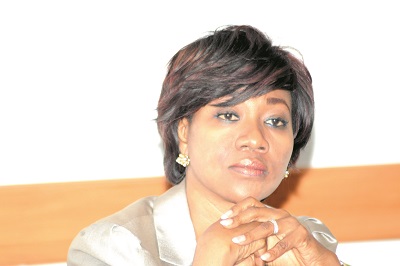Presidential Transition Act: IEA, GPPP submit proposals to government
 The Institute of Economic Affairs (IEA), in collaboration with the Ghana Political Parties Programme (GPPP), has submitted to the government for consideration proposed amendments to the Presidential (Transition) Act, 2012 (Act 845).
The Institute of Economic Affairs (IEA), in collaboration with the Ghana Political Parties Programme (GPPP), has submitted to the government for consideration proposed amendments to the Presidential (Transition) Act, 2012 (Act 845).
Advertisement
Titled the Presidential (Transition) (Amendment) Bill, the proposal seeks to amend some provisions in Act 845 to make it a better workable document.
The proposed amendments are in respect of Sections 1, 3, 3A, 5, 8, 10, 11 and 12A.
The review of the law follows submissions made by some Members of Parliament (MPs) at a two-day workshop at Akosombo in the Eastern Region recently.
The workshop was organised by the IEA under its GPPP initiative and attended by members of the Parliamentary Committees on Subsidiary Legislation and Constitutional, Legal and Parliamentary Affairs, as well as representatives of some political parties.
Section 1 of the Presidential (Transition) Act provides that the incumbent President and the President-elect nominate nine persons each to constitute the Transition Team, plus four other public office holders specified, bringing the total number to 22.
However, the amendment bill recommends that in the case where the transition involved only the incumbent President and not from one government to another, the number of the Transition Team should be reduced from 22, as currently provided in the Act, to 13.
That means the incumbent President would only be required to nominate nine persons plus the four public office holders as already provided.
The amendment bill recommended a period of six weeks, from the date of the declaration of the presidential election results, within which the Transition Team must complete its functions.
The amendment bill also suggested the need to grant the Administrator-General of the Presidential Estates Unit (PEU) enforcement powers that would enable him or her to ensure compliance of the law.
In 2001, for the first time in the history of Ghana, one political party handed over power to another political party.
However, the transition process was characterised by some administrative challenges and acrimony between the outgoing National Democratic Congress (NDC) government and the incoming New Patriotic Party (NPP) government.
Similar challenges plagued the transition process in 2009 in a reverse handing over from the outgoing NPP government to the incoming NDC government.
Those challenges informed the initiation and passage of the Presidential (Transition) Act to streamline the transition process and enhance public administration in the country.
But just one year after the passage of the cct, and even before the ink of the President’s assent given to it on May 31, 2012 could dry, members of Parliament (MPs) are recommending the amendment of some provisions in the law in view of bottlenecks identified in its implementation.
Nevertheless, a former Deputy Speaker of Parliament, Prof. Mike Oquaye, disagrees with a suggestion that the lawmakers did not do a good job on the act.
“Sometimes, people tend to look at negativities — failure of Parliament, somebody didn’t do this or that well. You see, we are transiting and Parliament, in making the law and trying to progress from our difficult situation, there may be a few lacunae.
“Let us think more of what we can do to make the law take care of all our situations rather than looking at what somebody didn’t do well. You learn from the experiences of hindsight and you make it good,” he contended.
By Kofi Yeboah/Daily Graphic/Ghana



